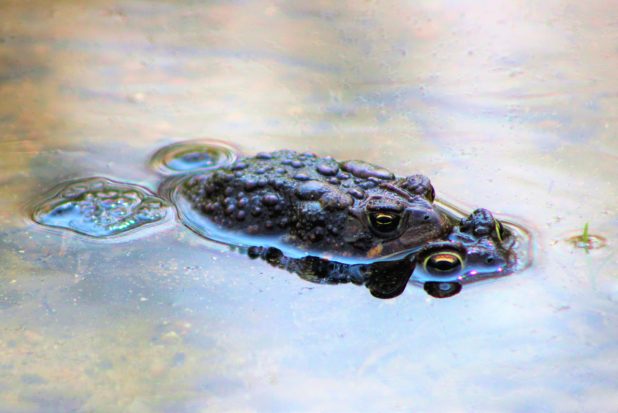Commentary
The buzz is back
July 2, 2019

July 2, 2019
By Nate Smelle
It doesn’t take long for anyone spending a few minutes outdoors in North Hastings at this time of year to become a blood donor. While working in the garden over the weekend I realized I had been making a contribution to the local ecosystem when I noticed the red juice running down my forehead and into my eyes.
Cursing the bloodsuckers I retreated indoors to wash my face and soak down with a homemade brew of apple cider vinegar and garlic.
By the amount of blood seeping through my white shirt it was a miracle I was still standing. To psyche myself up before heading back outside to finish the task at hand, I browsed some information regarding the benefits of mosquitoes that I had gathered at a biodiversity lecture at the March for Science in Washington, D.C. in the spring of 2017.
According to entomologist and director of the University of Kentucky’s public health entomology lab Grayson Brown, the entire ecosystem where they reside would be in danger of collapse. Stressing the importance of mosquito larvae in aquatic ecosystems, Brown explained that because many insects, birds, frogs, salamanders and small fish feed on them, if mosquitoes were to disappear the populations of the creatures feeding on them would also suffer. In turn, he said the larger fish, reptiles, mammals and raptors that feed on the species that rely on mosquitoes and their larvae as a food source would also decline. Upon further investigation I also found out that mosquitoes also fill another essential ecological niche, pollinating grasses and flowering plants including goldenrod, blunt-leaved bog orchids and other rare Arctic bog orchids.
Convinced that my plasma donation was in service of the greater good, I put on my bloodstained shirt and went back outside to plant the eggplant seedlings I had picked up at the Maynooth Farmers Market a few weeks back. Smelling of garlic and apple cider vinegar and looking like a cast member of The Walking Dead, I grabbed the shovel and continued digging. Before I knew it I had stirred up an ants nest sharing the garden with me. I don’t mind ants sharing my garden; after all, that is their natural habitat. It’s just when they cross the line of my home that I’ll have to call Terminix marlyand pest control in to get rid of them. They’re just too pesky to put up with, and having them in every nook and cranny is unhygienic. However, seeing the tiny insects scrambling to make sense of the chaos I had caused reminded me of a conversation I had with one of the Bird’s Creek Public School students at the National Indigenous Peoples Day and summer solstice celebration last week.
While standing in the grass listening to the Shawashkong Ikwe Singers, I spotted one of the kids running towards me yelling “Watch out!” Unsure of what I was watching out for I froze in place.
“Be careful, look at all the ants!” said the young girl. As I stood there afraid to move, she then proceeded to tell me all about ants and why she loves them so much. Informing me that there are more than 12,000 species of ants on the planet that have been identified, she told me that ants had been around for more than 140-million years.
“An ant can lift 20 times its own weight, so if I was an ant I could lift more than 1,000 pounds,” she added.
The more I listened, the more I learned.
Once she had finished sharing I tip-toed my way back to the car, so that I would not harm the ants or upset the aspiring myrmecologist.
Now in my own garden standing among the ants again, I remembered how this student had inspired me to conduct my own research on these tiny industrious socialist creatures. Going back indoors after the last eggplant was planted, I pulled out the notes on biodiversity that I had recently used to look into mosquitoes.
Recalling that one of the lecturers in Washington had spoken about ants and ecology, I flipped through my notes until I found what I was looking for. Though I had neglected to write down the speaker’s name, I did note how if ants were to vanish many terrestrial ecosystems would collapse because they help to build soil by cleaning ecosystems of decaying organic matter.
Although this was all I had jotted down regarding ants specifically, I did find a quote I had scrawled in the margins from the world’s leading myrmecologist, Edward O. Wilson, that seemed to fit well with this entomological meditation. Speaking to the value of establishing a kinship with other species, Wilson writes “Look closely at nature. Every species is a masterpiece, exquisitely adapted to the particular environment in which it has survived. Who are we to destroy or even diminish biodiversity?”
Especially when it has so much to teach us, and there is still so much we have to learn.


















